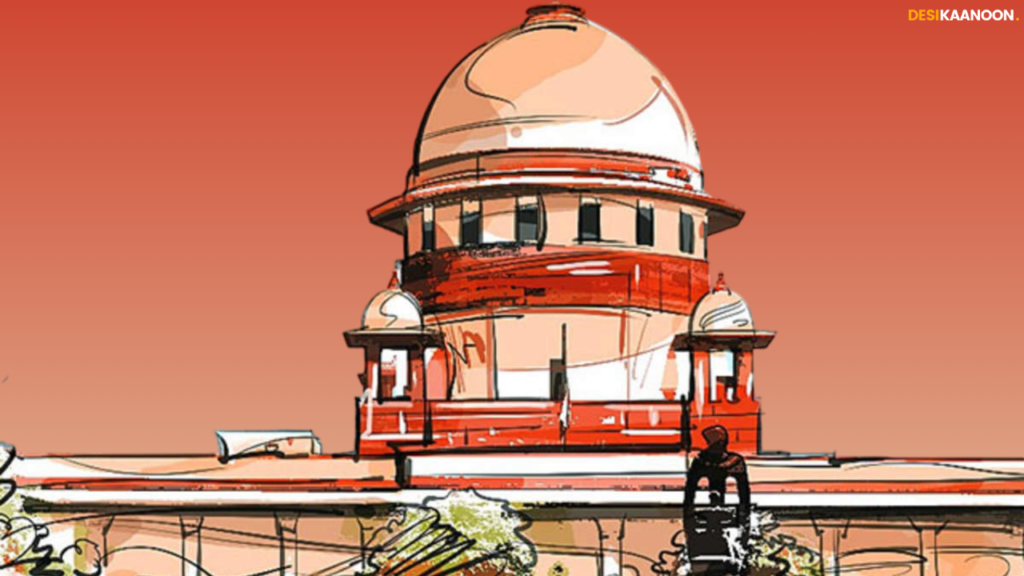Rehan Khan
On 6th November, the Supreme Court rebuked the Uttar Pradesh Government for demolishing a resident’s house without following due process, calling the act “high-handed” and illegal. The case, heard by a Bench comprising of Chief Justice of India DY Chandrachud and Justices JB Pardiwala and Manoj Misra, highlighted serious concerns about administrative overreach and disregard for legal procedures.
The Bench was hearing a suo motu writ petition initiated after a complaint from Manoj Tibrewal Aakash, whose home in Maharajganj District was demolished in 2019 as part of a road-widening project. The Court underscored the impropriety of the demolition, noting that it was conducted without any prior notice or adequate legal justification. “How can you just enter someone’s home and demolish it without following the course of law or serving notice,” the Bench asked, expressing strong disapproval.
The petitioner alleged that the demolition was a retaliatory action due to his exposure of alleged irregularities in a local road construction project. He claimed that no official notice was issued to him, and the demolition team only made announcements through loudspeakers on-site, a process the Court termed as inadequate and insufficient. Addressing this, the Court pointed out, “This is completely high-handed! Where is the due process followed? We have the affidavit that says no notice was issued, you only went to the site and informed the people through loudspeaker.”
An inquiry report by the National Human Rights Commission (NHRC) further supported the petitioner’s claims, revealing that the demolition exceeded the encroachment area, which was alleged to be a mere 3.7 square meters. This discrepancy prompted the Court to question the extent and basis of the demolition, observing that the State provided no evidence regarding the original width of the road, the notified extent of the highway, or even any formal land acquisition. Justice Pardiwala voiced concern over this approach, stating, “You can’t come with bulldozers and demolish houses overnight. You don’t give time to family to vacate. What about the household articles? There has to be due process followed.”
The Court concluded that the State’s actions were unlawful and ordered the UP government to pay ₹25 lakh as punitive compensation to the petitioner. The Court emphasized that this compensation would not preclude the petitioner from pursuing further legal action. Furthermore, it directed the UP Chief Secretary to investigate the officials and contractors responsible for the demolitions and take disciplinary action against those involved. Criminal proceedings were also authorized, with a strict compliance deadline of one month for these directives.
Additionally, the Court issued guidelines for road-widening demolitions, mandating a transparent process that includes assessing the current road width, issuing formal notices to alleged encroachers, and allowing time for objections and vacating the premises. The judgment also stipulated that any objection must be addressed through a reasoned order before any action is taken. The Court ordered that a copy of this judgment be circulated to all States and Union Territories to standardize the procedure for removing encroachments during infrastructure projects.
Case Title: In Re: Manoj Tibrewal Akash
Case Number: W.P.(C) No. 1294/2020
Bench: Chief Justice of India DY Chandrachud and Justice JB Pardiwala and Justice Manoj Misra

